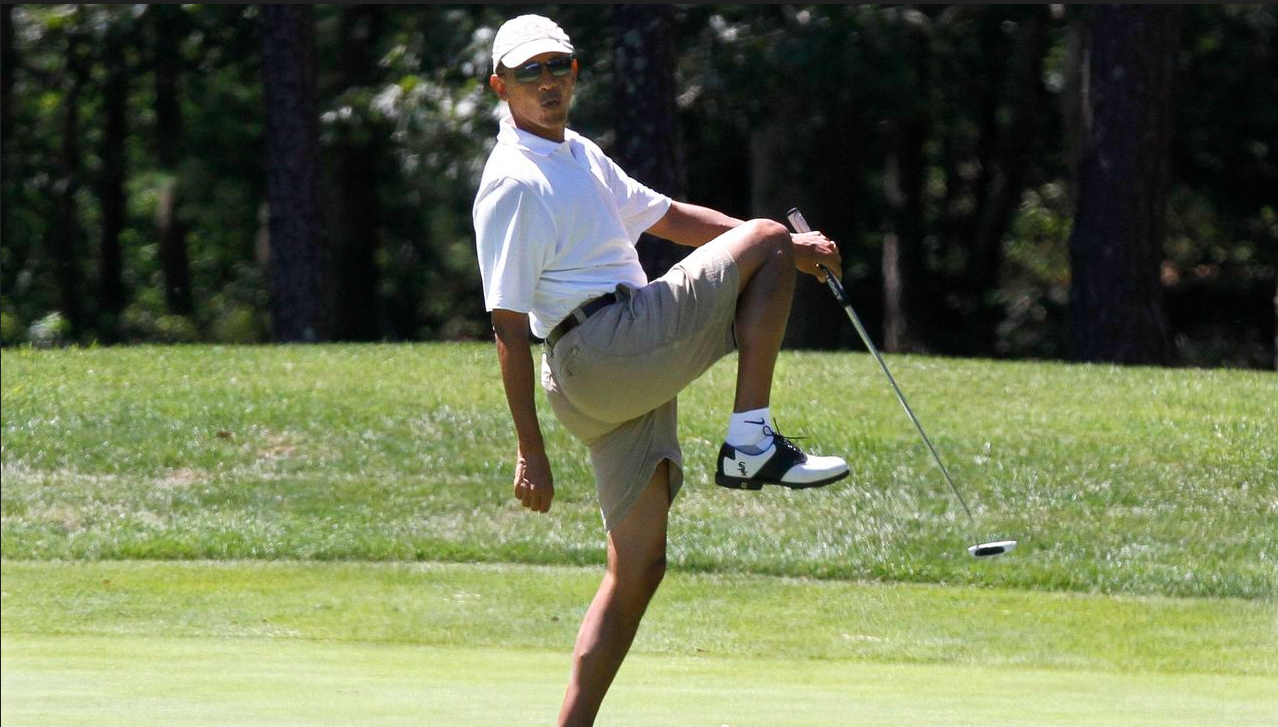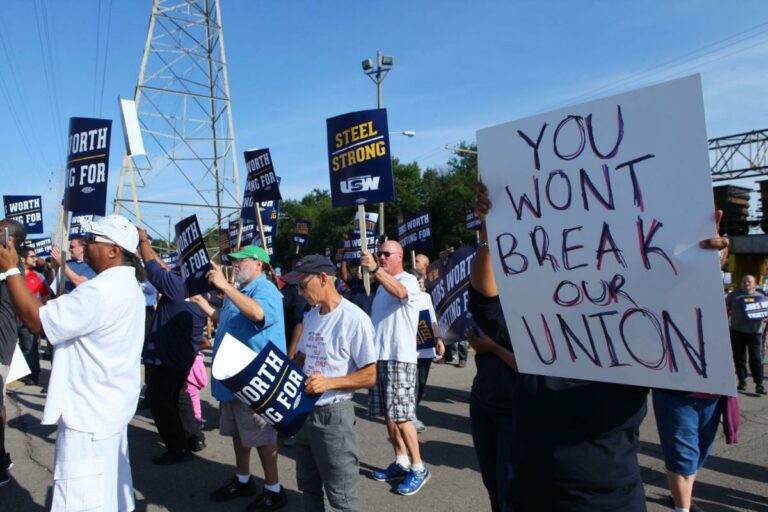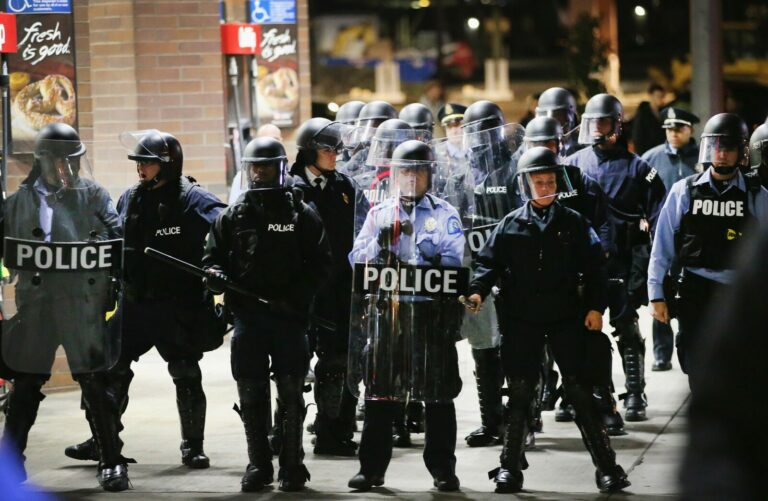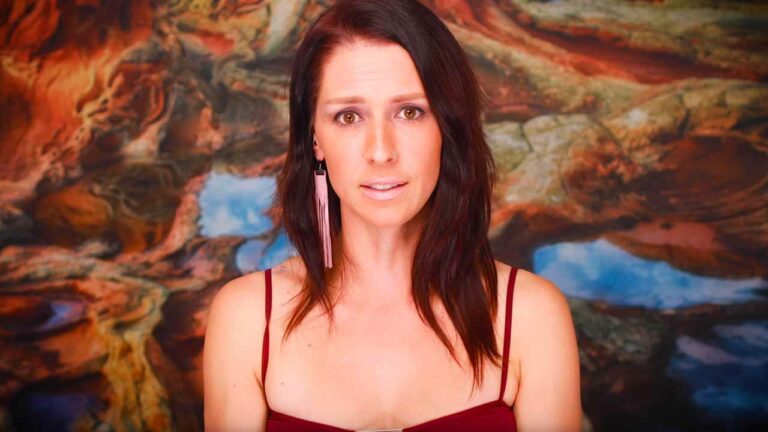Corporate Media is Destroying Democracy – Phil Donahue on Reality Asserts Itself (pt 2/3)
This is an episode of Reality Asserts Itself, produced on October 2, 2014. Mr. Donahue says that corporate media doesn’t rock the boat; it is the boat.
PAUL JAY, SENIOR EDITOR, TRNN: Welcome back to The Real News Network. I’m Paul Jay, and this is Reality Asserts Itself. And we’re continuing our discussion with the legendary journalist and television producer, host, and political activist now, I would say, Phil Donahue.
Thanks for joining us.
PHIL DONAHUE, PHIL DONAHUE, TV TALK SHOW HOST: Pleasure, Paul.
JAY: So, one more time, quickly, Phil’s an “Emmy Award-winning media personality”, they wrote here (but you’re kind of way more than just a media personality), best known as the creator and host of the Donahue Show, which ran for 29 years on cable TV. And, again, he was also the host from July 2002 to March 2003 before msnbc canceled it because of his vocal opposition to the 2003 U.S. invasion of Iraq.
Let’s talk about that. When you were in Cleveland, you had all kinds of antiwar guests. You had—.
DONAHUE: Dayton.
JAY: Dayton. I’m sorry. You were born in Cleveland, but the show’s in Dayton. Sorry.
When you got picked up later, in the ’80s, by the network, they knew the kind of show you were doing.
DONAHUE: Yeah.
JAY: They knew the kind of guests you had on.
DONAHUE: Well, yeah. But we had numbers.
JAY: You had numbers.
DONAHUE: Yes. And by then, certainly, everybody was scratching their head and saying, maybe the Vietnam War was not a good idea. So it took a lot less courage.
JAY: Okay. But in 2003, you got numbers. You’re doing a show on msnbc. You’re the highest-rated show on msnbc. And in spite of having numbers, you get canceled because of the kind of guests you have, and people understand from the way you’re talking and framing questions that you’re opposed to this Iraq War. Something changes.
DONAHUE: Well, first of all, it’s less than a year after the Towers. In October 2002, both houses of Congress passed the Iraq War Resolution—a fascinating bit of material that is included in my documentary, by the way, titled Body of War, available on Netflix (thank you). Everybody, it seemed, wanted to bomb somebody.
And if you recall that I worked for msnbc at that time, the cable channel, msnbc was owned by General Electric. General Electric is one of the five largest defense contractors in the nation. General Electric’s biggest customers: the president and Donald Rumsfeld. And they got this has-been, gray-haired talkshow host on their own station criticizing all of these major players. And it was an interesting study in corporate media. Corporate media does not want to rock the boat. Corporate media is the boat. That’s what makes The Real News Network important.
You know, you can’t—when I was a reporter—if I could just take a second—when I was a reporter in Adrian, Michigan, I worked for a radio station. I was the news director, ’cause I was the only person in the news department. And I was a reporter. I didn’t take a test. I didn’t pee in a bottle. I just said, I’m a reporter. And I was. I had a Norelco tape recorder with vacuum tubes in it and a microphone that said WABJ on it. And a very small radio—the signal went across the street. But I covered my first murder there. I covered the city hall. I played on the police softball team to cultivate my sources. You know?
And I couldn’t get over how much power I had. I could stop the mayor—boom. I was, like, 21, I must’ve looked 12, and I couldn’t—you know, you saw those letters. And I began to appreciate how important journalism was, how powerful it was, how important it was. This was my nirvana, if there’s—. It made me understand that this was a very noble calling.
And the reason I was able to be a reporter without all these screenings is that because if that’s the case, then you have a lot of people reporting the news. That means that if you have a whole bunch of people, somewhere in the collective middle of this large crowd will be found the truth.
The problem today is that that middle is today occupied by five international, multinational corporations much more interested in the price of their stock than they are in making Donald Rumsfeld angry. And that is the dilemma of corporate media. And it is ruining our democracy.
And there’s a group out there. They call themselves media reform. And that is their banner. And they’ve all got their cameras and their [incompr.] They’re going to where—elite media cover elite power. That’s why you never see Dennis Kucinich on Meet the Press, or Amy Goodman or Paul Jay, or anybody who’s likely to wind up in this venue.
JAY: Go back and tell the story of what happened at msnbc.
DONAHUE: Well, I was criticizing the invasion. I wanted to know why—we don’t know if there’s weapons of mass [destruction there (?)]. And suddenly—my executive producer would go to a meeting every morning, and then suddenly the rules: they wanted me to do more celebrities; they wanted no part of—they had to concede that I had to have some of these protesters on, but they sent the rule down I had to have two conservatives on—
JAY: Pro-war.
DONAHUE: —yeah, for every one liberal. I was considered two liberals. This is a study in how terrified they were.
JAY: There’s an actual memo that went public later.
DONAHUE: It was published, thank God, by The New York Times. A conservative focus group company sent the memo to NBC News, saying that Donahue’s antiwar stance will not compete against the flag-waving on the other station. So this was definitely a political hit. Thank God that The Times published this and it was revealed that I was—the invasion was in April 2003, and I was gone in February.
JAY: Something’s changed. Go back to ’68, which we were talking about in the first segment, during the Democratic Party convention. Who’s on television? Gore Vidal debating William Buckley Jr. Can you imagine them allowing a Gore Vidal on television now? There was—as Cold War-ish as the mainstream media was, there was some room for this kind of dissent, if you will. More importantly, there was some room, and even some prominent room, for some kind of reasonable, rational, moderate voices politically, even in the Republican Party.
DONAHUE: Yeah.
JAY: They’re completely marginalized now. In the Republican Party, they’re gone, virtually. And in the Democratic Party, they’re either cowed and afraid to speak or marginalized.
As we ended the first segment, I said, you’ve gotten to know the American elite more than most kids that grow up in working-class homes do. What the heck do they think are they doing? I mean, they’ve got to know—in terms of climate change, in terms of where the economy is headed, the geopolitics, how can they not know they’re leading us all over a cliff? Yet off we go.
DONAHUE: Well, you ask that question at a time when I think they are beginning to know. It may be too late—certainly not soon enough.
But it’s important to remember that the king has been wounded. We spend $2 billion a day on things that go boom. And the 19 guys with box cutters brought this nation to its knees. Two guys with pressure cookers closed the entire metropolitan area of Boston, Massachusetts.
And we are so angry, certainly we’re in—when I was on the air at msnbc, that a president has to be tough. Everyone who runs for office has to be tough. You don’t get a statue in a park for fixing health care or the economy. You only get a statue in the park for war. Win a war. We have cannons in parks. Kids plan on cannons. We have become a militarized nation. We have no respect for diplomacy.
And this has rapidly caught on in such a way that we have now a billion—a corporation makes $1 billion a year profit promoting the tough, militaristic stance. It’s called the Fox News corporation. The people on Fox News who commentate—you know, Krauthammer, Will, and all those guys who speak in tablets—they can’t wait to criticize Obama when they get—before their foot hits the floor, they’re thinking about what they’re going to—Krauthammer used the word stupidest to—I don’t know; is that a word?—to describe Obama, because it works. They are far and away the most successful news cable outlet in America. So they’re in the Fox box. They can’t really give us the broad reach of their insightful thinking, which I think is probably pretty significant. I think those guys were the first to raise their hand in class. I believe they were the A students. They were the sons my mother wanted to have. But if they even indicate that they might have some positive thing to say about, for example, Obama, they risk losing the brand. It’d be like a rock and roll radio station playing Mantovani. They couldn’t do it. It’s too risky. You lose your audience if you do that. And these guys are now in this straitjacket. They have no choice but to bash the president. It’s awful. It rises to the level of unpatriotic. And I wonder how much—if it has legs. How long can they go on like this? It’s so predictable. Every night, Hannity couldn’t be more incredulous about what Obama just did.
JAY: But if you look at the elite as a whole, there’s one section which is represented by Fox opinion and, you know, fossil fuel, a big section of fossil fuel, and certainly a big section of industrial-military complex, and some of these other areas, and the Koch brother types and such. But in the Democratic Party and the Obama administration, it’s not like that section of the elite has had the society’s interest at heart either. Obama picks a finance team out of Wall Street that just shovels money into the big banks to make them look as if they actually have balance sheets that one could believe these institutions could continue to exist the way they are. The Fed just gives them zero percent loans. In terms of foreign policy, I mean, he has this big thing of Afghanistan was going to be the civilian surge and deal with the underlying economic issues of Afghanistan. Of course, it wound up being just the same kind of stuff that Bush had been doing. I’m not saying there’s no difference between the two. There are some small differences. But if you look at the first two years, when they controlled both houses, you know, they promised the labor movement the Employee Free Choice Act, they suppose, you know, going to have a robust public option on health care, boom, give Baucus chairman of—let him be chairman of the committee and not even let a single single-payer person come testify. I mean, and I’m not trying to hammer President Obama individually. He represents an administration, he leads an administration which represents a section of people, to a large extent Wall Street, that got him elected. They’re all driving us over a cliff. Just the Fox—you know, maybe Fox would have us back, and maybe instead of a war with Iraq they’d like us to have a war with Iran. They may be crazier, but the more rational voices in the elite—in some sense I include you; you don’t come from there, but you kind of got yourself a platform there—you’re completely marginalized.
DONAHUE: Well, let me just tell you, I interviewed, for example, Rosa Parks. She’s this high. And I just can’t get over that I have shared a dais with her. She’s been on my program. And I can’t get the picture of that big old sheriff, whatever the uniform, you know, “Back of the bus, lady,” and she said no to this. She’s a statue today in the nation’s capital. And I knew her. From that, in my lifetime, to “I, Barack Obama, do solemnly swear”—I started to tear up when I saw this. This is my own lifetime.
And President Obama has been a huge disappointment. Signature strikes—from the Oval Office, he signs off on a murder of a citizen? We’re sending unmanned aerial vehicles, the most cowardly instrument in the history of warfare—a guy sits on a padded chair that leans back for comfort, probably a coffee pot over here. There they are—he sees the screen—4,000 miles away. And a hellfire missile is fired. We are killing children. We are killing wedding parties. We are killing American citizens by name and on purpose. We are listening in on people’s phone calls. We have people in cages 14, 15 years without—forget habeas. There’s no Red Cross, no phone call, no nothing. The bedrock of this nation is being chipped away, and it’s happening under President Obama’s watch. So if you’re saying we have a lot of reason to be depressed, I agree. And I am.
JAY: I’m not saying that, ’cause I’m not depressed. I’m saying we need to give up the idea that change is in any way, shape, or form, except maybe homeopathic amounts, going to come from the elites. But the Rosa Parks, the new ones, the American people—yeah, I’m actually optimistic. I’m not depressed. I think that’s who we’ve got to talk to.
DONAHUE: Well, you’ve got to talk to me, too. I’m trying. I don’t want to be cynical. I have too many friends who say, you know, hey, wars happen. But every president has to. You know, there’s a surrender to the inevitability of war. Everything conspires to war.
JAY: Yeah. It’s—I’ve always wondered, how did they get into the First World War? You could see it coming. It was so insane. And now you can feel.
DONAHUE: Well, when you spend $2 billion a day, do the math. Norman Solomon has taught me to—he wrote a book called War Made Easy. You know, if you give a president a cruise missile, he will fire it. The last several presidents have bombed—we bombed Grenada. Grenada! You know, we are bombing crowded cities at night, where old people and children are sleeping. And the American people are watching it on CNN.
JAY: Now, you live in New York, you know all kinds of people, and you say these things to them. And what do they say to you back? I’m talking about not ordinary people; people within the elite.
DONAHUE: Well, obviously, they vary. I mean, Amy Goodman is doing something about it.
JAY: Well, I don’t consider Amy in the elite, so—.
DONAHUE: Well, that’s true. She wouldn’t—no, she’s not. But wow, what a—you know, she’s our—what a wonderful voice.
JAY: Yeah.
DONAHUE: Many young activists stand on her shoulders today.
And that’s certainly going to be true, is true of your fabulous operation here. I mean, this is a jewel in the crown of the fabulous American idea of dissent and challenging, pushing back on powerful institutions and people. This country has no future without this kind of organization, with real cameras and microphones that work, and using the modern means of communication to move hearts and minds. And you’re doing that. And you have my total admiration.
JAY: Thank you.
DONAHUE: So if there’s any reason for me to feel optimistic—and I’m trying not to, really, because cynicism is death knell. You suddenly—you know, I thought about my own commitment. The first—I think it’s three phases. The first phase is the fun phase. I mean, you get out and you meet black people and brown people and the centers and sing, ♪ We shall overcome ♪. Oh, I felt so proud to be a part of these people.
The next phase is the angry phase: everybody’s a bigot but you, and you turn people off. And it’s at that moment, in that phase, that the saints are made, the people who suddenly realize that you are a feather and the problem is the Rock of Gibraltar. And the people who keep on keeping on after that phase, arriving at that level, I think, are the saints of—you know, I see the feminists [incompr.] Gloria Steinem is that way. I see Dick Gregory, for example, and people who—Jesse, Al Sharpton, people who take all the incoming and keep on keeping on had my—anybody can go out and wave your arms for a weekend and then go home, you know, or go and live under a car top somewhere in the West or take guitar lessons. But the people who keep on keeping on—and I’ve met so many in the—.
The gay movement’s a great example of this. This has been a revolution in warp speed. I went from scared to death in 1967 to gay marriage. I got the first gay award for media in 1985. And the 20th anniversary of that thing, I was invited back. There were over 14 people there in midtown Manhattan, and I got my picture taken with the award. I was invited back on the 20th anniversary of this award, Marriott Marquis hotel, not an empty seat, wall-to-wall tables, all filled, and there were more paparazzi there than there were people when I got this award. General Electric, IBM, American Airlines, Fortune 500 companies, everybody was there. Cherry Jones, the actress, gave me the award. And I thought to myself, I have never seen anything like this. This happened in my lifetime. Sure ain’t over. Nobody’s going to go to a gay person’s and say, I bet you’re glad it’s over. It isn’t. You know, homophobia is lethal. And we all of us have to—. But more than half of the people in this country support gay marriage. Wow. Who would have thunk that in 1967?
JAY: Some of the people that keep on carrying on have been whistleblowers, and more of them have been arrested under this administration than any other. And in the next segment of Reality Asserts Itself with Mr. Donahue, we’re going to talk about whistleblowers, investigative and independent journalism, and an issue he’s been very passionate about and continues to fight for.
So please join us on Reality Asserts Itself on The Real News Network. Thanks for joining us.
“Phillip John Donahue is an American media personality, writer, film producer and the creator and host of The Phil Donahue Show. The television program, later known simply as Donahue, was the first talk show format that included audience participation.”






